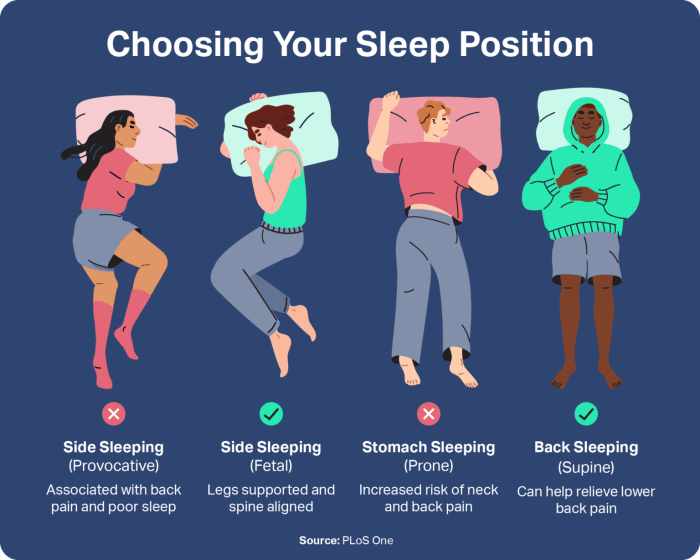Benefits of iron supplements are crucial for overall health, especially for those with deficiencies. This comprehensive guide explores the various ways iron supports bodily functions, from its role in carrying oxygen to its importance during pregnancy and athletic performance. We’ll delve into the different types of iron supplements, their dosages, and potential side effects. Understanding the benefits of iron supplements is key to making informed decisions about your health and well-being.
We’ll cover the specific benefits for pregnant women, athletes, and individuals with anemia. We’ll also discuss the mechanisms of iron absorption, potential side effects, and the impact of iron deficiency. Furthermore, we’ll examine dietary sources of iron and how to maintain healthy iron levels naturally. This guide will equip you with the knowledge you need to understand and leverage the benefits of iron supplements effectively.
Iron Supplements

Iron supplements are dietary supplements containing iron, a crucial mineral for various bodily functions. They are often prescribed or taken to address iron deficiencies, a condition that can lead to anemia and fatigue. Understanding the role of iron, the available forms, and appropriate dosages is vital for safe and effective supplementation.Iron is essential for producing hemoglobin, the protein in red blood cells responsible for carrying oxygen throughout the body.
Without sufficient iron, the body struggles to deliver oxygen efficiently, resulting in various health problems. This deficiency can impact energy levels, immune function, and cognitive performance.
Forms of Iron Supplements
Iron supplements come in various forms, each with its own absorption characteristics. Common forms include ferrous sulfate, ferrous fumarate, and iron bisglycinate. Ferrous sulfate is often the most affordable option, but it can sometimes cause digestive upset. Ferrous fumarate offers a slightly higher iron content per pill. Iron bisglycinate is considered a more gentle form that may be better tolerated by individuals with sensitive stomachs.
Different formulations vary in their absorption rates, influencing the required dosage.
Dosage Recommendations
The recommended dosage of iron supplements depends on several factors, including age, gender, and underlying health conditions. Generally, the recommended daily allowance (RDA) for iron varies significantly by age group. For example, pregnant women often require higher doses to support fetal development. Consult a healthcare professional for personalized recommendations. It’s crucial to adhere to prescribed dosages to maximize benefits and minimize potential side effects.
Table of Iron Supplements
| Supplement Type | Typical Dosage (mg) | Potential Side Effects |
|---|---|---|
| Ferrous Sulfate | 65-600 mg (depending on the product) | Constipation, nausea, stomach upset, dark stools |
| Ferrous Fumarate | 150-300 mg (depending on the product) | Constipation, nausea, stomach upset, dark stools |
| Iron Bisglycinate | 25-50 mg (depending on the product) | Generally better tolerated; occasional nausea or mild stomach discomfort |
This table provides a general overview. Individual responses to iron supplements can vary. Always consult a healthcare provider before starting any iron supplementation regimen.
Benefits of Iron Supplements for Specific Groups
Iron supplements are crucial for maintaining healthy iron levels, vital for numerous bodily functions. However, the specific needs and benefits of iron supplementation vary greatly depending on individual circumstances and health conditions. This section explores the advantages of iron supplements for pregnant women, athletes, individuals with iron deficiency anemia, and vegetarians/vegans.Iron deficiency, if left unaddressed, can lead to a multitude of health problems, ranging from fatigue and weakness to more severe conditions.
Understanding the specific benefits of iron supplementation for various groups can help individuals make informed decisions about their health.
Benefits for Pregnant Women
Iron requirements significantly increase during pregnancy due to the growing fetus and the mother’s expanding blood volume. Iron deficiency during pregnancy can lead to complications like premature birth, low birth weight, and anemia in both the mother and the child. Iron supplementation during pregnancy is crucial to support healthy fetal development and prevent maternal anemia. Adequate iron intake ensures the developing baby receives sufficient oxygen and nutrients.
This, in turn, contributes to a healthier pregnancy and a healthier baby.
Benefits for Athletes
Athletes often experience increased iron needs due to heightened red blood cell production and potential blood loss through exercise. Iron deficiency can negatively impact athletic performance, leading to fatigue, reduced endurance, and decreased oxygen delivery to muscles. Iron supplementation can help athletes maintain optimal iron levels, promoting better energy production, endurance, and overall athletic performance. This can translate to improved training outcomes and better athletic achievements.
Benefits for Individuals with Iron Deficiency Anemia, Benefits of iron supplements
Iron deficiency anemia is a condition characterized by a low level of red blood cells and hemoglobin, resulting in reduced oxygen-carrying capacity. Symptoms can range from mild fatigue to severe weakness and shortness of breath. Iron supplementation is essential for restoring iron levels and alleviating the symptoms of iron deficiency anemia. It helps in increasing the production of red blood cells, thereby improving oxygen transport throughout the body and alleviating anemia-related symptoms.
Benefits for Vegetarians and Vegans
Vegetarians and vegans often face challenges in obtaining sufficient iron from their diets due to the limited availability of heme iron in plant-based foods. Non-heme iron, found in plant foods, is less readily absorbed by the body. Iron supplementation can be beneficial for vegetarians and vegans to address this potential deficiency. This can lead to improved energy levels, reduced fatigue, and overall better health.
However, it’s important to note that a balanced vegetarian or vegan diet, combined with iron-rich foods and possibly supplements, is crucial to maintain adequate iron levels.
Comparison of Benefits for Different Groups
| Group | Specific Benefits |
|---|---|
| Pregnant Women | Supports healthy fetal development, prevents maternal anemia, reduces risk of complications. |
| Athletes | Maintains optimal iron levels, enhances energy production, improves endurance, supports athletic performance. |
| Individuals with Iron Deficiency Anemia | Restores iron levels, alleviates anemia symptoms, improves oxygen transport, enhances overall well-being. |
| Vegetarians/Vegans | Addresses potential iron deficiency due to limited heme iron intake, improves energy levels, reduces fatigue. |
Mechanisms of Iron Absorption and Utilization
Iron, an essential mineral for various bodily functions, is primarily obtained from dietary sources. Understanding the mechanisms of iron absorption and utilization is crucial for optimizing iron intake and preventing deficiencies. Iron absorption is a complex process that involves several steps and factors, and the body tightly regulates iron homeostasis.
Dietary Iron Absorption Mechanisms
Iron from food sources exists in two forms: heme iron and non-heme iron. Heme iron, found in animal products like meat, fish, and poultry, is readily absorbed by the body. Non-heme iron, found in plant-based foods like beans, lentils, and leafy greens, is absorbed less efficiently. The body absorbs iron through the small intestine, where specialized cells called enterocytes facilitate the process.
- Heme Iron Absorption: Heme iron is absorbed directly into the enterocytes without significant modification. The iron is then incorporated into the body’s iron transport system.
- Non-Heme Iron Absorption: Non-heme iron absorption is more complex and influenced by various factors. The absorption rate of non-heme iron can be significantly improved by the presence of vitamin C, which facilitates the conversion of iron to its absorbable form. Factors such as the presence of other nutrients and the body’s iron status also play a role.
Role of Nutrients in Iron Absorption
Several nutrients can influence iron absorption, either enhancing or hindering it.
- Vitamin C: Ascorbic acid (vitamin C) is a powerful enhancer of non-heme iron absorption. It facilitates the conversion of iron from its less absorbable ferric form to its absorbable ferrous form. A good example of this is pairing iron-rich foods with citrus fruits or other vitamin C-rich foods.
- Phytates: Found in grains, legumes, and nuts, phytates can bind to non-heme iron, reducing its absorption. This is why it’s often recommended to avoid consuming iron-rich foods with high-phytate foods at the same time.
- Polyphenols: These compounds, present in tea, coffee, and some fruits and vegetables, can also inhibit iron absorption. The impact is typically more pronounced with non-heme iron. A good example is avoiding drinking tea with iron-rich meals.
- Meat Protein: Meat protein, particularly heme iron sources, can enhance the absorption of non-heme iron, a phenomenon sometimes called the “meat factor”. This is due to the presence of specific proteins in meat that increase the bioavailability of non-heme iron.
Iron Supplement Absorption
Iron supplements, typically in the form of ferrous sulfate or ferrous fumarate, are absorbed differently than dietary iron. The absorption rate of iron supplements can vary depending on the form and dosage.
- Absorption Mechanism: Iron supplements are absorbed primarily in the same way as non-heme iron, relying on the conversion to the ferrous form and transport across the enterocytes. However, the process is typically more efficient in iron supplements due to the higher concentration of iron in the supplement.
- Dosage and Form: The dosage and form of the supplement can influence the absorption rate. Higher doses may lead to greater absorption but can also increase the risk of side effects like gastrointestinal upset. Different forms of iron supplements have different absorption rates.
Importance of Vitamin C in Iron Absorption
Vitamin C plays a crucial role in enhancing iron absorption from dietary sources. It significantly improves the absorption of non-heme iron by reducing iron’s ferric form to its ferrous form, making it more readily absorbed by the body. This is a key factor to consider for those following a vegetarian or vegan diet, as plant-based iron sources are often less bioavailable.
Comparison of Iron Absorption
| Factor | Dietary Iron (Non-Heme) | Iron Supplements |
|---|---|---|
| Absorption Rate | Lower, influenced by other nutrients | Higher, often more consistent |
| Form | Ferrous and ferric | Mostly ferrous |
| Side Effects | Generally lower risk | Potential for gastrointestinal upset |
| Vitamin C Influence | Enhances absorption | Enhances absorption |
Potential Side Effects and Interactions
Iron supplements, while beneficial for many, can also have side effects and interact with other medications. Understanding these potential issues is crucial for safe and effective use. Proper dosage and monitoring are essential for minimizing risks and maximizing benefits.While iron is vital for health, excessive intake can lead to adverse effects. Furthermore, certain medications can interfere with iron absorption or increase the risk of side effects.
Therefore, careful consideration and consultation with a healthcare professional are paramount before initiating iron supplementation.
Potential Side Effects
A variety of side effects can arise from iron supplementation, ranging from mild to severe. Understanding these potential side effects empowers individuals to recognize and address any concerns promptly.
- Constipation: Iron supplements can often lead to constipation, particularly at higher doses. This is a common side effect and can be managed by increasing fluid intake, adding fiber to the diet, and consulting a healthcare professional.
- Nausea and Vomiting: Some individuals experience nausea and vomiting after taking iron supplements. This can be due to the direct irritation of the stomach lining by iron.
- Diarrhea: While less common than constipation, diarrhea can also be a side effect of iron supplements.
- Heartburn and Abdominal Pain: These are further possible side effects, which might be linked to the way iron is processed in the stomach.
- Darkened Stools: Iron supplements can cause stools to appear darker in color. This is a harmless side effect and not a cause for concern.
- Headache: Some individuals experience headaches after taking iron supplements.
Potential Interactions
Iron supplements can interact with various medications, potentially altering their effectiveness or increasing the risk of adverse effects. Understanding these interactions is vital for preventing complications.
- Antacids: Antacids can reduce the absorption of iron. Taking iron supplements and antacids together might not allow the body to utilize the iron as effectively. A gap of several hours between taking the two is often recommended.
- Certain Antibiotics: Some antibiotics, particularly tetracycline, can interfere with iron absorption. There can be interactions with these medications.
- Calcium Supplements: Calcium supplements can also reduce iron absorption. A gap between taking calcium and iron supplements is crucial for proper absorption.
- Chelating Agents: Medications used to remove heavy metals can also interfere with iron absorption. A doctor should be consulted if you’re taking chelating agents.
Importance of Consulting a Doctor
Before initiating iron supplementation, it is imperative to consult a healthcare professional. A doctor can assess individual needs and risks, ensuring safe and effective use of iron supplements.
- Individualized Dosage: A healthcare professional can determine the appropriate dosage based on individual needs and medical history. Dosage recommendations will differ based on the individual’s specific requirements and condition.
- Underlying Health Conditions: Iron supplements might not be suitable for everyone. Pre-existing health conditions, such as hemochromatosis or other blood disorders, can influence the necessity and appropriateness of iron supplementation.
- Interactions with Medications: A doctor can assess potential interactions between iron supplements and other medications being taken, ensuring no negative impact on existing health conditions.
Symptoms to Watch Out For
Recognizing symptoms of potential side effects is crucial for prompt intervention. Regular monitoring and reporting to a healthcare professional are important for ensuring safety.
- Severe Abdominal Pain: Intense abdominal pain, which may be accompanied by other symptoms, warrants immediate medical attention.
- Excessive Nausea or Vomiting: Persistent or severe nausea and vomiting can indicate a problem and should be discussed with a healthcare professional.
- Changes in Stool Color or Consistency: Unusually dark or loose stools might be associated with iron supplement use. If these changes persist, consult a healthcare professional.
- Difficulty Breathing: If difficulty breathing occurs alongside iron supplement use, medical attention is essential.
Precautions and Interactions Table
| Potential Side Effect | Potential Interaction | Precautions |
|---|---|---|
| Constipation | Antacids, Calcium Supplements | Increase fluid intake, add fiber to diet, consult doctor |
| Nausea/Vomiting | Certain Medications | Adjust dosage, consult doctor, consider taking with food |
| Diarrhea | Certain Medications | Consult doctor, adjust dosage |
| Darkened Stools | None (usually harmless) | No specific precautions needed |
| Headache | Other Medications | Monitor for severity, consult doctor |
Iron Deficiency and its Impact
Iron deficiency, a prevalent nutritional disorder, significantly impacts overall health and well-being. It arises from an inadequate intake of iron or impaired absorption, leading to insufficient iron stores in the body. This deficiency can affect various bodily functions, from oxygen transport to immune response, potentially causing a cascade of health problems. Understanding the causes, symptoms, and long-term consequences of iron deficiency is crucial for prevention and effective management.
Iron supplements can be a lifesaver for boosting energy levels and overall well-being. But sometimes, amidst our busy schedules, we forget the simple joys in life, like the unwavering support of our best friends. Taking a moment to appreciate the 17 priceless things we’ve forgotten to thank our best friends for the 17 priceless things we’ve forgotten to thank our best friends for can be just as energizing.
Ultimately, though, a balanced diet and potentially iron supplements are crucial for maintaining optimal health and energy levels, which are a lot like the amazing bonds we share with our friends.
Causes of Iron Deficiency
Iron deficiency stems from a complex interplay of factors, often involving inadequate dietary iron intake, impaired absorption, or increased iron loss. Factors such as poor dietary habits, inadequate iron absorption, chronic blood loss, and pregnancy contribute significantly. A diet lacking iron-rich foods, like red meat, leafy greens, and fortified cereals, can be a primary cause. Additionally, conditions like heavy menstrual bleeding in women, gastrointestinal bleeding, and certain medical conditions can cause chronic iron loss.
Inherited conditions can also play a role in iron malabsorption.
Iron supplements can be a game-changer for energy levels and overall health. Sometimes, though, we hit roadblocks in our health journeys. Just like in life, when we face challenges and setbacks, we can learn from them and approach our goals with a renewed perspective, embracing the lessons of failure the opportunity begin again more intelligently.
Ultimately, understanding the right approach, whether it’s about our health or our goals, is key to making progress and reaching our full potential. Iron supplements can help us feel our best, providing the building blocks for a healthier, more energetic lifestyle.
Symptoms of Iron Deficiency
The initial symptoms of iron deficiency can be subtle, often overlooked. As the deficiency progresses, more pronounced symptoms emerge. Common signs include fatigue, weakness, pale skin, shortness of breath, and cold hands and feet. Individuals may also experience headaches, dizziness, and a reduced ability to concentrate. In severe cases, symptoms can progress to brittle nails, spoon-shaped nails (koilonychia), and pica (craving and eating non-nutritive substances like ice).
Diagnosing iron deficiency often requires blood tests to assess hemoglobin and ferritin levels.
Long-Term Consequences of Iron Deficiency
Prolonged iron deficiency can have significant long-term consequences on physical and cognitive function. The body’s ability to carry oxygen throughout the body is hampered, leading to chronic fatigue and reduced physical performance. Iron deficiency can impair cognitive function, affecting concentration, memory, and overall mental acuity. In pregnant women, iron deficiency can lead to complications during pregnancy and potentially affect the health of the developing fetus.
Furthermore, chronic iron deficiency may increase the risk of certain infections due to compromised immune function.
Causes, Symptoms, and Long-Term Effects of Iron Deficiency
| Category | Description |
|---|---|
| Causes |
|
| Symptoms |
|
| Long-Term Effects |
|
Dietary Sources of Iron: Benefits Of Iron Supplements
Iron is an essential mineral for numerous bodily functions, and obtaining it from a balanced diet is crucial for overall health. However, the type and amount of iron absorbed from food vary significantly. Understanding the different dietary sources and their bioavailability is vital for ensuring adequate iron intake.
Iron supplements are crucial for overall health, boosting energy levels and supporting red blood cell production. But sometimes, the most impactful aspect of taking iron supplements is the proactive approach they encourage – like asking the right questions in an interview. For example, demonstrating a thoughtful approach, such as by researching the company and role thoroughly before your interview, as outlined in the best questions ask interview leave remarkable impression , can leave a lasting positive impression.
Ultimately, understanding your body’s needs, and researching potential career opportunities, is a powerful combination for success, just like iron supplements are for optimal health.
Iron-Rich Foods
A variety of foods contain iron, with some being more bioavailable than others. Iron absorption from food is influenced by several factors, including the form of iron in the food, the presence of other nutrients in the meal, and the overall diet. Heme iron, found in animal products, is generally better absorbed than non-heme iron, which is present in plant-based foods.
Comparison of Iron Bioavailability
The bioavailability of iron from different dietary sources is a critical factor in determining the effectiveness of iron intake. Heme iron, derived from animal sources like red meat, poultry, and fish, is typically more easily absorbed by the body than non-heme iron, found in plant-based foods. Factors such as the presence of vitamin C can enhance the absorption of non-heme iron.
Conversely, substances like phytates, found in legumes and whole grains, can hinder absorption. Therefore, the presence of these compounds in a meal can impact the overall bioavailability of iron.
Dietary Iron vs. Supplemental Iron
Dietary iron differs from supplemental iron in several ways. Dietary iron is typically part of a complex meal, influencing absorption differently than a standalone supplement. The body’s absorption mechanisms for dietary iron are integrated into the overall digestive process. Supplemental iron, on the other hand, is often a concentrated form of iron, taken independently of other nutrients, which can affect absorption and potentially lead to side effects.
The context of a meal plays a crucial role in the bioavailability of dietary iron.
Table of Iron-Rich Foods
| Food | Approximate Iron Content (mg per serving) | Preparation Methods |
|---|---|---|
| Lean Beef | 3-5 | Grilled, baked, or stir-fried. Cooking methods do not significantly alter iron content. |
| Chicken Breast | 1-2 | Grilled, baked, or poached. Cooking methods do not significantly alter iron content. |
| Spinach | 2-3 | Sauteed, steamed, or added to salads. Cooking can slightly increase iron absorption when paired with vitamin C-rich foods. |
| Lentils | 3-4 | Cooked, or added to soups and stews. Soaking lentils before cooking can improve iron absorption. |
| Fortified Cereals | Variable | Typically consumed with milk or other beverages. Fortified cereals can be a good source of iron for those with low intake. |
| Dried Fruits (e.g., raisins, apricots) | 1-2 | Eaten as a snack, or added to dishes. Pairing with vitamin C-rich foods can enhance iron absorption. |
Considerations for Choosing Iron Supplements

Choosing the right iron supplement is crucial for ensuring its effectiveness and minimizing potential side effects. While iron is essential for various bodily functions, improper supplementation can lead to health issues. Understanding the factors involved in selecting an iron supplement can help you make informed decisions and maximize your health benefits.Selecting an iron supplement requires careful consideration. It’s not just about finding any product; it’s about choosing a product that aligns with your individual needs and health goals.
This involves understanding the nuances of iron absorption, potential side effects, and the importance of consulting a healthcare professional.
Importance of Reputable Brands
Reputable brands often prioritize quality control and manufacturing standards. This translates to a higher likelihood of consistent product composition and purity, reducing the risk of impurities or inconsistent iron content. Thorough research and checking for certifications like GMP (Good Manufacturing Practices) can help you identify reliable brands.
Checking Label for Purity and Quality
Carefully scrutinizing the label is paramount to ensuring the supplement’s quality and safety. Look for specific details like the form of iron (e.g., ferrous sulfate, ferrous fumarate), the amount of elemental iron per serving, and any potential additives or fillers. This information helps you understand the specific iron content and the overall composition of the supplement. It also enables comparison with other options to make a well-informed choice.
Factors to Consider When Choosing an Iron Supplement
Understanding the various aspects of iron supplements can help you make informed choices. Consider the following factors:
- Iron Form: Different iron forms have varying absorption rates. Ferrous sulfate is often recommended due to its relatively good absorption, but other forms like ferrous fumarate are also effective. Consult a healthcare professional to determine the best form for your needs.
- Dosage: The recommended dosage depends on your individual needs and health conditions. Consult your doctor for the appropriate dosage for your specific situation. Overdosing can lead to health problems, while insufficient dosage may not address the deficiency effectively.
- Purity and Quality: The purity and quality of the iron supplement are crucial for effective absorption and minimizing side effects. Look for reputable brands with clear labeling and certifications.
- Potential Side Effects: Iron supplements can cause side effects such as constipation, nausea, and stomach upset. Choose a supplement with a form that is less likely to cause these side effects or consider taking it with food to reduce the likelihood of these problems.
- Cost: While cost should not be the sole factor, it’s important to consider the cost per serving in comparison to other available options. Balance cost with quality and effectiveness.
Consulting a Healthcare Professional
Before starting any iron supplement regimen, consulting a healthcare professional is essential. A healthcare professional can assess your specific iron levels, identify underlying causes of deficiency, and recommend the most appropriate supplement, dosage, and duration. This individualized approach ensures the safety and effectiveness of iron supplementation tailored to your unique health needs. Ignoring this step could lead to complications.
Maintaining Healthy Iron Levels Naturally
Iron is essential for a myriad of bodily functions, from oxygen transport to cell growth. Maintaining adequate iron levels through a healthy diet and lifestyle choices is crucial for overall well-being. This approach, focusing on natural sources, can prevent deficiencies and reduce the need for supplements, promoting a more sustainable and holistic approach to health.Maintaining healthy iron levels is more than just consuming iron-rich foods; it’s about optimizing the absorption of iron from those foods.
Factors like vitamin C intake and avoiding iron inhibitors (like coffee and tea) play significant roles in maximizing your body’s ability to utilize the iron in your diet. A balanced approach, combining dietary strategies with mindful lifestyle choices, is key to maintaining optimal iron levels naturally.
Dietary Strategies for Iron Intake
A diet rich in iron-rich foods is fundamental to maintaining healthy iron levels. Regular consumption of these foods ensures your body receives the necessary iron for optimal function. Combining iron-rich foods with foods high in vitamin C further enhances iron absorption.
- Prioritize Iron-Rich Foods: Incorporating iron-rich foods into your daily meals is paramount. Iron-rich foods provide the building blocks for healthy iron levels.
- Vitamin C Synergy: Pairing iron-rich foods with vitamin C-rich foods significantly boosts iron absorption. Citrus fruits, berries, and bell peppers are excellent choices.
- Strategic Meal Planning: Planning meals around iron-rich foods and vitamin C-rich accompaniments creates a strategic approach to ensuring adequate iron intake throughout the day.
Importance of Regular Consumption of Iron-Rich Foods
Regular consumption of iron-rich foods is crucial for maintaining healthy iron levels. Consistent intake ensures a steady supply of iron to support the body’s ongoing needs.
- Consistent Supply: A regular intake of iron-rich foods provides a consistent supply of iron, preventing fluctuations in iron levels that could lead to deficiency.
- Sustained Energy Levels: Adequate iron intake supports healthy red blood cell production, leading to sustained energy levels throughout the day.
- Cellular Function: Iron is vital for various cellular processes. Consistent consumption of iron-rich foods maintains the health and function of cells throughout the body.
Lifestyle Choices and Iron Balance
Lifestyle choices significantly impact iron balance. Practices like avoiding excessive alcohol consumption and maintaining a healthy weight contribute to better iron absorption and utilization. Stress management techniques also play a role in maintaining overall health, which indirectly supports iron balance.
- Alcohol Moderation: Excessive alcohol consumption can interfere with iron absorption. Moderating alcohol intake is essential for optimal iron balance.
- Weight Management: Maintaining a healthy weight can positively influence iron absorption and overall health, contributing to better iron balance.
- Stress Management: Chronic stress can impact various bodily functions, including iron absorption. Employing stress management techniques can contribute to better iron balance.
Examples of Iron-Rich Foods and Meal Incorporation
A variety of iron-rich foods are available, and incorporating them into daily meals is relatively straightforward. Consider pairing iron-rich foods with vitamin C-rich foods to maximize absorption.
| Food | Iron Content (approximate) | How to Incorporate |
|---|---|---|
| Red Meat (Beef, Lamb) | High | Include in stews, stir-fries, or as a main course. |
| Legumes (Beans, Lentils) | Moderate | Use in soups, salads, or as a side dish. |
| Spinach | Moderate | Add to smoothies, salads, or stir-fries. |
| Fortified Cereals | Moderate | Consume as part of breakfast, ensuring vitamin C is also present in the meal. |
| Dried Fruits (Apricots, Raisins) | Moderate | Use as snacks or add to breakfast cereals. |
Outcome Summary
In conclusion, understanding the benefits of iron supplements requires a holistic approach. This guide has highlighted the importance of iron for various groups, from pregnant women to athletes. We’ve explored the mechanisms of absorption, potential side effects, and the crucial role of diet in maintaining healthy iron levels. Ultimately, prioritizing a balanced diet rich in iron-rich foods, coupled with informed supplementation when necessary, is essential for overall health and well-being.
Remember to always consult a healthcare professional before starting any new supplement regimen.











